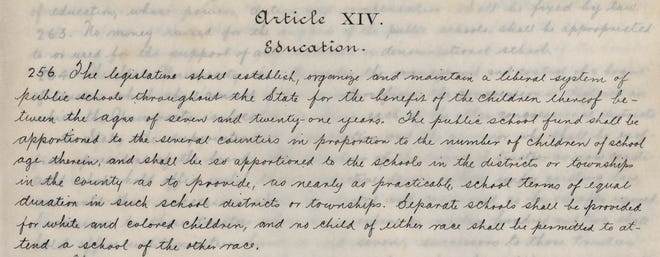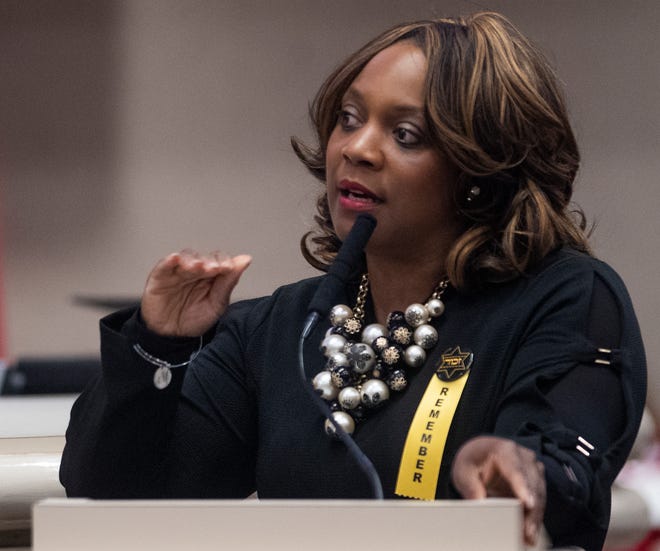
It got the overwhelming approval of legislators in both parties, and more than two-thirds of Alabama voters.
There’s still work left to be done to begin removal of racist language from the Alabama Constitution. But Rep. Merika Coleman, D-Pleasant Grove, said she found the margins of support for Amendment 4 encouraging.
“In the political climate we live in right now, any time you get a piece of legislation with all Democrats and all Republicans in the Legislature, that’s hard,” she said. “And then to get the percentage passage in the political climate we’re in, in the racial climate we’ve been in of late, it’s so heartwarming to see Alabamians come together.”
The measure passed on Nov. 3 with about 67% of the vote in unofficial, incomplete returns. Amendment 4 does not remove the offensive sections, but instead authorizes the Legislative Division of the Legislative Services Agency, which drafts bills for legislators, to recompile the state Constitution.
The amendment will also authorize a recompilation of local amendments to reflect the county they affect, and a better sense of the economic development measures in the state’s governing document. Othni Lathram, the director of the Legislative Services Agency, said in an interview that about three-quarters of the amendments in the Constitution are local amendments, with about 70 dealing with economic development.
“There’s still a lot of work to be done, but a huge amount of official legwork has been done over the years because of the process started in 2003,” he said.
Still, it remains an enormous task. Lathram said he did not think a bill would be ready for the Legislature’s consideration before the 2022 session. The bill would be a constitutional amendment, which 60% of both chambers will have to approve. If that occurs, the amendment will go to voters in the 2022 general election.

“There are significant checks and balances on this,” he said. “It’s still got to pass the Legislature by a three-fifths vote and it’s still got to be ratified again. I hope people concerned or worried to take it too far find some comfort in that there.”
Alabama Constitution is a racist document
The framers of the 1901 Constitution had one overriding goal: to prevent Black Alabamians and poor whites from voting. Supporters of the document, including the Montgomery Advertiser, made overt racist appeals to voters. The morning it passed — thanks to fraud — the Advertiser crowed on its front page that the “putrid sore of Negro suffrage is severed from the body politic of the commonwealth.”
The 2004 proposal removed it; the 2012 proposal left it in place. Both moves proved controversial and killed those measures. Amendment 4 does not address Amendment 111.
Coleman said she hoped passage of the amendment would send a positive message about Alabama tourism and economic development to the rest of the world. She also said it showed that “on the right issues, we can really come together.”
“It sends a message to the rest of the country that we’re not 1901 Alabama, we’re not 1954 Alabama, we’re not 1965 Alabama,” she said. “We are 21st century Alabama.”
